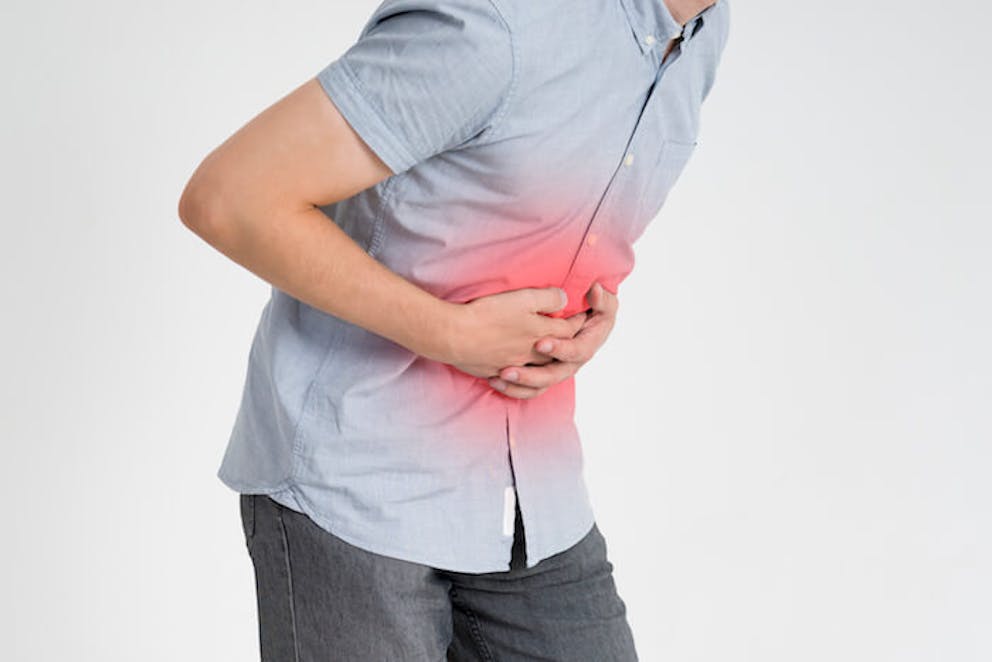Using Sh*t as an Effective Treatment???
Using Sh*t as an Effective Treatment???
Whether you're a health enthusiast or someone exploring new treatments for gut issues, you might have heard about Fecal Microbiota Transplantation.
This innovative procedure has been making waves in medical circles for its potential to treat conditions like Clostridium difficile infections. But what exactly is it? And more importantly, should you consider it?
It might sound odd at first, but transferring stool from a healthy donor to your gut can do wonders. Imagine rebooting your microbial balance and reaping the health benefits just by using what's naturally there.
Let's dive into the benefits, risks, and long-term effects of this fascinating treatment that could transform lives.
The Historical and Modern Journey of Fecal Microbiota Transplantation
Fecal microbiota transplantation (FMT) may sound like a modern medical marvel, but its roots trace back centuries.
This innovative treatment has evolved from ancient practices to become a game-changer in contemporary medicine, offering hope for those battling recurrent Clostridium difficile infections and showing promise in treating various other conditions.
Ancient Practices to Modern Medicine
The concept of using fecal matter for medicinal purposes dates back to ancient Chinese medicine. In the 4th century, Chinese physician Ge Hong documented using "yellow soup," a fecal suspension, to treat severe diarrhea and food poisoning.
Fast forward to the present day, and FMT has gained acceptance in contemporary healthcare settings as a viable treatment option for recurrent C. diff infections.
Effectiveness Against C. diff Infections
Fecal microbiota transplantation has proven to be a superior treatment option for Clostridium difficile infections compared to traditional antibiotics.
Studies have shown that FMT has a success rate of up to 90% in treating recurrent C. diff infections, surpassing the efficacy of antibiotics alone.
By restoring the balance of the gut microbiome through the introduction of healthy donor stool, FMT helps combat the overgrowth of C. diff bacteria and breaks the cycle of recurrence.
Understanding the Science Behind Fecal Microbiota Transplantation
To fully grasp the potential of fecal microbiota transplantation, it's essential to understand the intricate relationship between our gut health and overall well-being.
The human gut is home to trillions of microbes, collectively known as the gut microbiome, which play a crucial role in maintaining our health.
The Gut-Immune System Connection
The gut microbiota is intricately linked to our immune system, with about 70% of our immune cells residing in the gut. These beneficial bacteria help regulate immune responses by communicating with immune cells and modulating inflammation.
When the balance of the gut microbiome is disrupted, it can lead to a weakened immune system and increased susceptibility to infections and diseases.

Autoimmune Diseases and Gut Health
Research has uncovered compelling links between gut microbiome imbalances and various autoimmune diseases.
Studies have shown that individuals with conditions such as inflammatory bowel disease, rheumatoid arthritis, and multiple sclerosis often have altered gut microbiomes compared to healthy individuals.
Restoring a healthy balance of gut bacteria through FMT has the potential to modulate the immune system and alleviate symptoms associated with these autoimmune disorders.
The Broad Spectrum of FMT Applications
While fecal microbiota transplantation has proven highly effective in treating recurrent C. diff infections, its potential applications extend far beyond gastrointestinal disorders.
Researchers are exploring the use of FMT for a wide range of conditions, from neurological disorders to metabolic diseases.
Beyond Gastrointestinal Disorders
FMT is being investigated as a potential treatment for inflammatory bowel diseases like ulcerative colitis and Crohn's disease. Preliminary studies have shown promising results, with some patients experiencing remission or significant improvement in symptoms following FMT.
Additionally, researchers are exploring the use of FMT for neurological conditions such as autism and multiple sclerosis, based on the emerging understanding of the gut-brain axis and the influence of the gut microbiome on brain function.
Potential in Cancer Risk Reduction and More
Emerging research suggests that FMT may have a role in reducing the risk of certain cancers. Studies have found that individuals with a healthy and diverse gut microbiome have a lower risk of developing colorectal cancer compared to those with dysbiosis.
Furthermore, FMT is being investigated as a potential adjunct therapy for managing metabolic disorders like obesity and type 2 diabetes, as the gut microbiome plays a significant role in regulating metabolism and energy balance.
Maximizing the Benefits of FMT Through Lifestyle Choices
While fecal microbiota transplantation can be a powerful tool in restoring gut health, lifestyle choices can further enhance and sustain its benefits.
FMT recipients can take proactive steps to support the transplanted microbiota and promote long-term gut health.
Diet's Role in Maintaining Transplanted Microbiota
Diet plays a crucial role in shaping and maintaining the gut microbiome. After undergoing FMT, recipients can support the transplanted microbiota by adopting a diet similar to that of the healthy donor.
This typically involves consuming a variety of fiber-rich fruits, vegetables, and whole grains, which serve as prebiotics to nourish the beneficial bacteria. Avoiding processed foods, excessive sugar, and artificial additives can also help maintain a healthy gut environment.
The Impact of Environment on Gut Health
In today's modern world, we are often exposed to overly sterile environments and processed foods, which can limit our exposure to diverse microbes. This lack of microbial diversity can negatively impact our gut health and overall well-being.
FMT offers a way to reintroduce a wide range of beneficial microbes into the gut, helping to restore the natural diversity that may have been lost.
However, it's important to recognize that ongoing exposure to a variety of microbes through natural environments, such as spending time outdoors and consuming fermented foods, can further support the maintenance of a healthy gut microbiome post-FMT.
Navigating the Risks and Adverse Effects of FMT
While fecal microbiota transplantation has shown remarkable success in treating recurrent C. diff infections and holds promise for other conditions, it is not without risks.
As with any medical procedure, there are potential adverse effects and considerations that both donors and recipients should be aware of.
Safety Measures and Donor Screening
To minimize risks and ensure the safety of FMT procedures, rigorous screening processes are in place for potential donors.
Donors undergo extensive medical evaluations, including blood tests and stool analyses, to rule out any infectious diseases or underlying health conditions that could pose a risk to recipients.
Additionally, donors are screened for risk factors such as recent travel to areas with high prevalence of certain infections, use of antibiotics, and lifestyle factors that may impact the quality of their gut microbiome.

Understanding Possible Adverse Events
While serious adverse events following FMT are rare, recipients should be aware of potential side effects. Common short-term adverse effects may include mild gastrointestinal symptoms such as bloating, abdominal discomfort, and changes in bowel movements.
These symptoms usually resolve within a few days post-transplantation. More serious adverse events, such as infections or allergic reactions, have been reported in rare cases.
Close monitoring and follow-up with healthcare providers are essential to address any concerns or complications that may arise promptly.
Conclusion
So, you've journeyed through the world of Fecal Microbiota Transplantation: Benefits, Risks, and Long-Term Effects.
We started with its quirky beginnings in ancient medicine to its groundbreaking status in modern health circles—yes, transferring healthy stool can actually be a lifesaver!
Then we unpacked how this procedure is more than just about gut feelings; it's science-backed hope for those battling with relentless infections like C. diff.
We didn't stop there. From boosting immune systems to potentially lowering cancer risks and even touching lives beyond gastrointestinal issues—think autism and MS—the scope of FMT might seem almost too good to be true.
But remember, while it offers a constellation of benefits, every star has a shadow; the risks are real from donor compatibility concerns to unforeseen adverse effects.
Yet amidst these cautions lie opportunities—a chance for people like you to reclaim their health by embracing both new treatments and traditional wisdoms on diet and lifestyle choices post-transplantation.
Fecal Microbiota Transplantation isn't just another medical fad—it's an invitation into an ongoing conversation about our bodies' complex ecosystems.
Whether you're considering this treatment or simply curious about alternative medical therapies that challenge our norms—FMT represents a fascinating blend of history meeting future possibilities!
Supporting Data
Previous blog
Eat Eggs and Butter and Lower Your Cholesterol
Popular
08/21/2024
55.8K views
02/23/2025
46.9K views
11/18/2024
281.8K views
03/18/2024
11/21/2022




